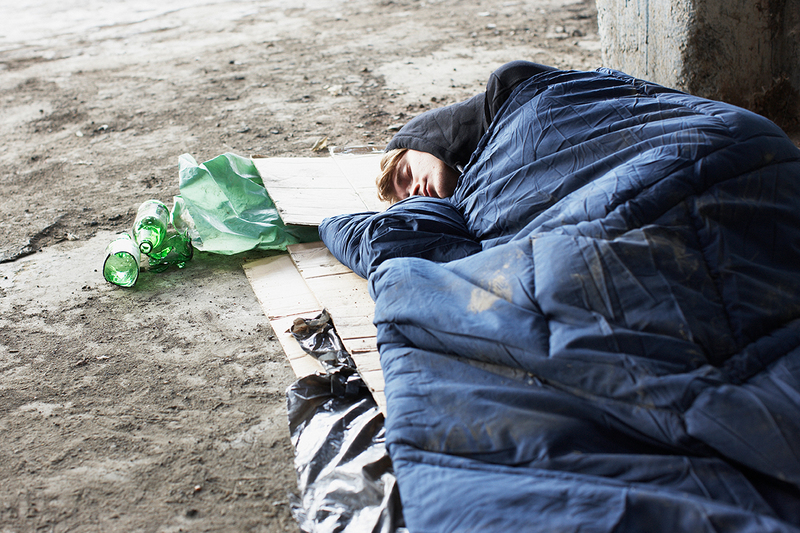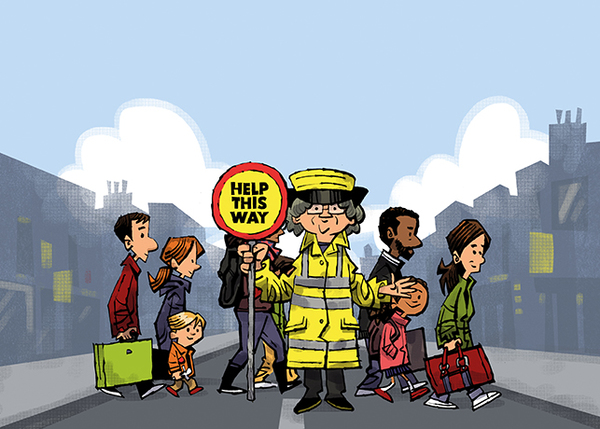You are viewing 1 of your 1 free articles
 Carol Matthews
Carol MatthewsHow the sector can make a Big Change on homelessness
We simply cannot allow the rise in rough sleeping to carry on, writes Carol Matthews
The recent cold snap just makes you think how dreadful it must be to spend a night on the streets and sadly, an increasing number of people have to.
Homelessness remains a massive problem for our country. Just walk down any city centre’s main shopping street and you’ll see it – people sleeping rough in every other doorway you pass.
Despite much great work across the housing sector and beyond, official figures show street homelessness has increased for the seventh consecutive year, but it’s likely this doesn’t actually capture the true extent.
Rough sleeping is just the tip of the iceberg, the visual aspect of homelessness. Hidden homelessness is also rife, with thousands of families in B&Bs and people sofa-surfing.
We simply cannot allow this to carry on.
Thankfully the government is responding and set out its commitment to tackling the growing problem with the passing of the 2017 Homelessness Reduction Act.
The act places new legal duties on local authorities to do more, and sooner, helping people either avoid homelessness altogether or alleviating it sooner.
We as housing providers continue to play an essential role in helping local authorities prevent and tackle homelessness through the provision of support services, temporary accommodation and longer-term housing.
However, a number of recent policy developments threaten to undermine this key partnership and the overall aim of the act.
One of these has been set out in the government consultation on the proposed new funding regime for short-term supported housing, which could have a significant impact on homelessness services. Riverside’s response illustrates how we would like to see a funding system that promotes equality and independence.
“The government’s supported housing funding proposal would see a return to an insecure and institutionalised model.”
As it stands, the government’s current proposal means people in short-term supported housing would have their housing costs met by the local authority through a scheme-based block grant.
This would see a return to an insecure and institutionalised model of funding which will do nothing to encourage new provision.
We are arguing for a uniform system, where all tenants, including those living in supported housing (with the exception of those in crisis accommodation) have their housing costs met through an entitlement based benefit system – ie Universal Credit.
Otherwise we miss the opportunity to prepare homeless people – and others living in supported housing – for sustainable, independent living.
These revised proposals don’t change the government’s proposed funding model in principle, but will help achieve its objectives of securing supply and strengthening a focus on outcomes and value within the modernised welfare system.
Talking of funding, while it is difficult to walk past someone on the street, we all know giving money doesn’t help people in the long term.
Even if the person receiving has a real need, the benefit is short term and could actually end up extending their life on the street.
That’s why Riverside is supporting the Big Change campaign, which enables the public to donate directly to a fund to help homeless people.
Through this, organisations and charities work directly with people who are homeless to access the fund, which will support them in building a life away from the streets, identifying exactly what they need.
Big Change encourages people to ‘give differently’ by pooling donations to get rough sleepers into housing. It pays for real things needed to furnish and maintain a home, such as: deposits and the first month’s rent; practical items like pots and pans, bed linen or a sofa; clothes for job interviews; and education or training courses.
Alongside this, Street Support (along with its app) provides a fast way to donate and provides more information about various charities and services supporting homeless people across Manchester, Liverpool, Leeds, Bournemouth, Portsmouth and Bradford. It also sets out how individuals and businesses can get involved.
We must continue to work together with local authorities and other providers, homelessness charities and specialist organisations to ease both visual and hidden homelessness by enabling sustainable housing solutions.
We cannot rely on government, with its seemingly ever-changing policies and unreliable funding. Those of us working with vulnerable people on the frontline are the ones who can make a Big Change, and now.
Carol Matthews, chief executive, Riverside Group











